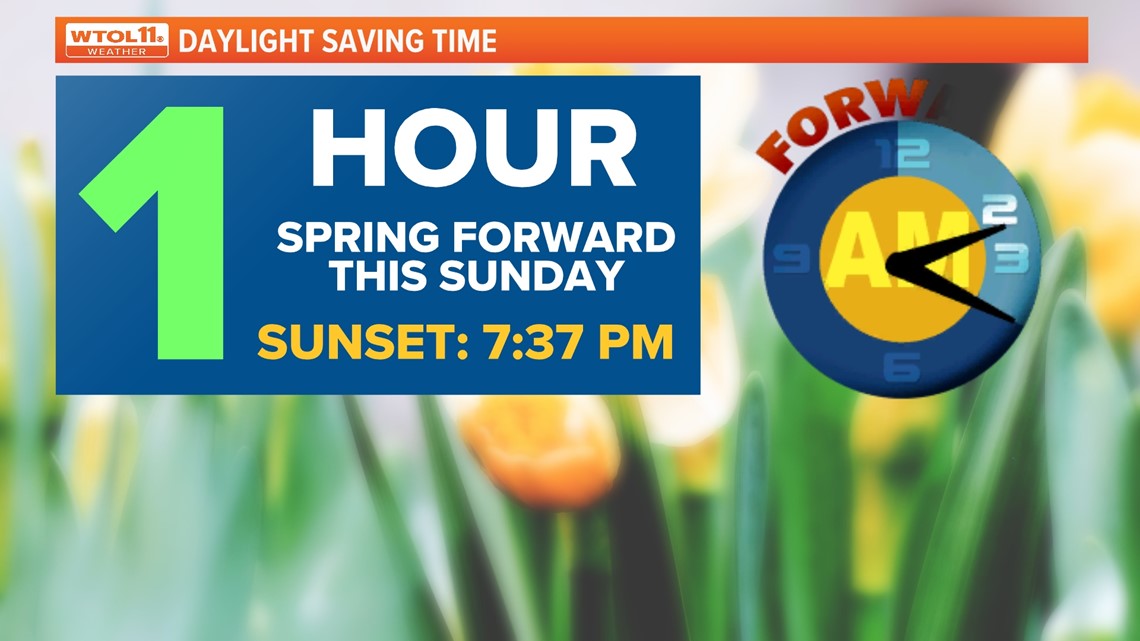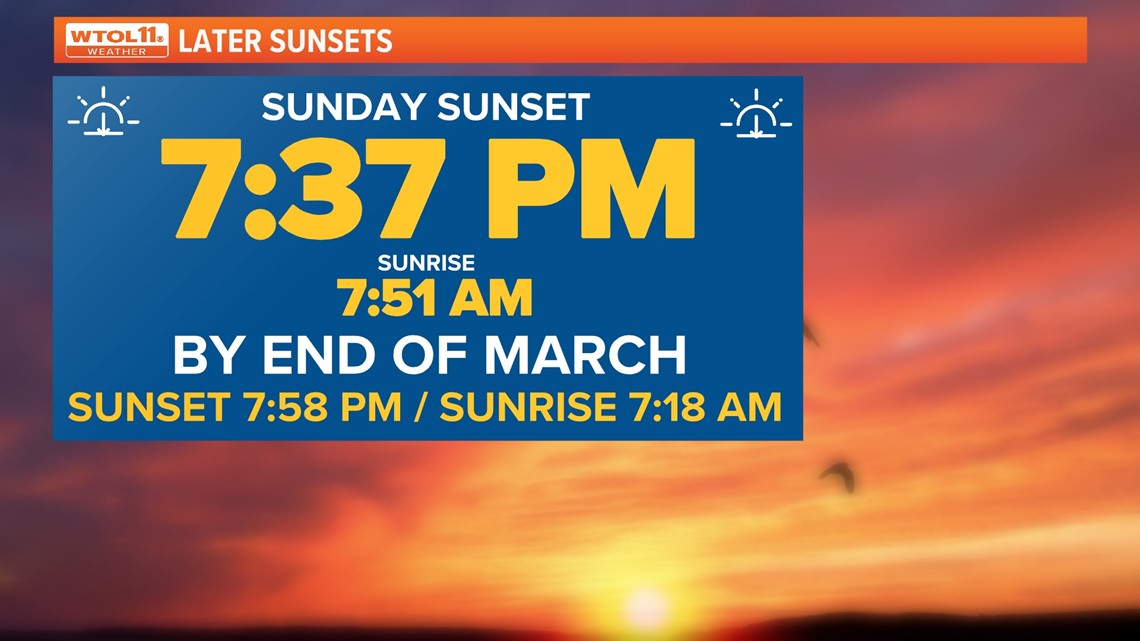TOLEDO, Ohio — Spring is just around the corner, which means baseball for some, gardening for others and daylight saving time for (almost) all of us.
On Sunday, 48 out of 50 U.S. States will move their clocks ahead one hour, and lose the extra hour of sleep they received back in November. Here's what you need to know about the sometimes-controversial annual event that adds an hour of daylight to the evening.
Daylight saving time (DST) begins on the second Sunday in March each year at 2 a.m., local time. In 2023, this lands on Sunday, March 12. After 1:59 a.m. passes, your clock will "skip over" the entire 2 o'clock hour and land instead at 3 a.m., from where it will continue normally until the first Sunday in November.
This also means the Sunday that DST begins is a 23-hour day. This "lost hour" will be found come fall, when your clocks run the 2 a.m. hour twice on the year's only 25-hour day (Nov. 5 this year).


DST extends the amount of daylight in the evening relative to how we measure time, meaning while the sun sets at 6:46 p.m. on Saturday March 11, it will set at 7:37 p.m. on Sunday, March 12 after the clocks "spring" forward.
Most digital clocks on cell phones and computers will make the update automatically. If you have an analogue clock or pieces of older technology or appliances not connected to the internet, such as a microwave, you will need to remember to set your clocks manually.


DST is observed in the U.S. in all states except Arizona and Hawaii. In Arizona, however, the Navajo Nation does observe DST. Overseas U.S. territories, like Guam and Samoa, do not observe DST.
Although efforts to incorporate DST in the U.S. stretch as far back as a 1784 tongue-in-cheek essay by Benjamin Franklin, it was not nationalized until 1966 with the Uniform Time Act.
The practice is not without its controversies. Lawmakers have introduced legislation in several states and at the national level to make DST permanent; thus far, however, none of the efforts have been made law.
MORE FROM YOUR COMMUNITY

